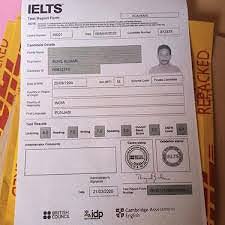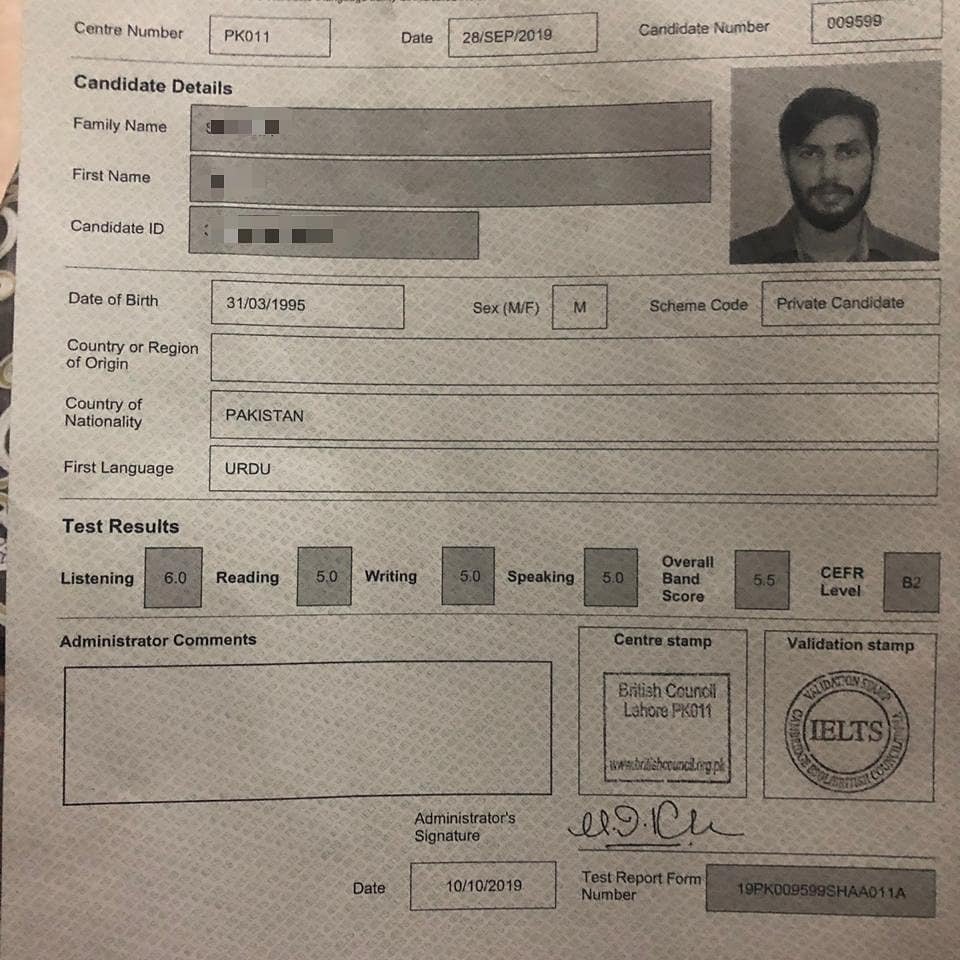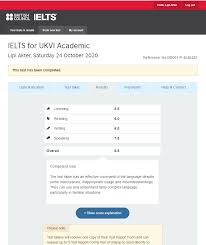While obtaining an official IELTS certificate is an important step for those seeking to work, study, or immigrate to English-speaking countries, there are instances where people might search for alternative ways to achieve their goals, such as acquiring a fake IELTS certificate. However, it is important to understand the serious legal and ethical implications of such actions.
Fake IELTS certificates are counterfeit versions of the International English Language Testing System (IELTS) certification, which is a globally recognized qualification used to assess English language proficiency. These fraudulent certificates may look like the real ones, imitating design elements, logos, and even the overall layout of an authentic IELTS certificate, often sold to individuals looking for shortcuts.
Here are some key features often associated with these fake IELTS certificates:
1. Appearance Similarity
A high-quality fake IELTS certificate might closely resemble the genuine certificate, down to the smallest details, such as font styles, logos, and layout. Some counterfeit providers claim to offer certificates that are indistinguishable from the real ones, which may include holograms, watermarks, and official-looking stamps to make the document seem authentic.
2. Customizable Scores
Providers of fake IELTS certificates often allow buyers to choose their desired scores for different sections of the test, such as reading, writing, listening, and speaking. This may appeal to individuals who need specific band scores to meet immigration, employment, or educational requirements.
3. No Testing Required
Unlike the legitimate process of earning an IELTS certificate, which involves rigorous preparation, attending an official test, and undergoing assessment by certified examiners, acquiring a fake certificate does not require any test-taking or preparation. This may seem like an attractive option for those seeking to bypass the effort involved in preparing for and passing the exam.
4. Risk of Legal Consequences
While fake IELTS certificates may appear convincing, using one can have serious consequences. Authorities are increasingly aware of the prevalence of counterfeit certificates and actively investigate cases of fraud. If caught using a fake IELTS certificate, individuals may face legal repercussions such as fines, imprisonment, or deportation (for immigration-related cases). In addition, educational institutions and employers often verify the authenticity of IELTS scores through official channels, making it likely that a fake certificate will be exposed.
5. Damage to Reputation
Using a fake IELTS certificate can result in significant damage to one’s personal and professional reputation. Whether applying for a job, seeking admission to a university, or filing for a visa, being caught using fraudulent documentation can lead to permanent bans from certain opportunities and can tarnish an individual’s credibility.
6. Ethical Considerations
Beyond the legal risks, using a fake IELTS certificate raises serious ethical questions. The IELTS test is designed to ensure that individuals possess the necessary English language skills for success in academic and professional environments. Using a counterfeit certificate undermines this system and can put unqualified individuals in situations where they may struggle to communicate or perform at the expected level.
Alternatives to Fake IELTS Certificates:
Instead of risking legal action and reputation damage, individuals should consider ethical and effective ways to improve their English language proficiency and obtain a legitimate IELTS certificate. Some options include:
- Enrolling in English language courses: Many institutions offer IELTS preparation courses that focus on improving specific skills needed for the test.
- Using online resources: There are countless free and paid resources available online that offer practice tests, tips, and strategies for succeeding in the IELTS exam.
- Taking practice tests: Regularly taking practice exams can help individuals understand the test format, manage time effectively, and identify areas for improvement.
- Hiring a tutor: Working with a qualified English tutor can provide personalized feedback and targeted assistance in improving English language skills.
Conclusion:
While the allure of a fake IELTS certificate may seem tempting, it is important to weigh the significant risks and consequences that come with it. A legitimate IELTS certificate, earned through proper channels, not only reflects true language proficiency but also upholds ethical standards. Achieving a genuine certificate may require time and effort, but it provides peace of mind, security, and respect for oneself and the institutions involved.
You Might Also Like These:
english language certificate sample



